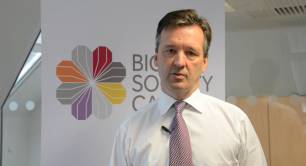SIB survey reveals £381m future financing need
![[file:field_file_image_alt_text]](https://www.pioneerspost.com/sites/default/files/styles/node-teaser-large/public/images/article/financeandinvestment1.jpg?itok=oeHMPTQo)
A need for £381m of investment for charities and social enterprises has been unearthed in a major survey on future financing needs.
The survey carried out by the Social Investment Business (SIB) Group on its 10th anniversary has revealed an average need for just over £600k of finance, with 63% of those surveyed needing less than £500k.
Based on 259 survey responses, the survey found that the typical organisation looking to raise finance was a charity or social enterprise working locally with a turnover of around £500k.
Some 68% of people surveyed said they needed financing to grow, 54.7% to start up and 38.4% to buy or refurbish property.
Ten years ago social enterprises and charities were generally
considered untouchable by banks and private investors.
SIB Group CEO Jonathan Jenkins
Just over half of those surveyed - 52% - were looking at some form of repayable finance in the next 12-24 months, with 41% willing to take on equity, 46% bonds and 71% repayable grant.
The survey also revealed that government policies on payment by results and asset transfer had opened up new pockets of demand which social investors could meet well.
SIB, which has made over 1,300 investments worth over £311 million in its 10-year history, said its ‘engaged investor’ approach had turned unbankable, socially-driven businesses into attractive investment opportunities.
‘Ten years ago social enterprises and charities were generally considered untouchable by banks and private investors,’ said Jonathan Jenkins, SIB Group CEO. ‘Today, after ten years of investing we’ve shown that they can appeal to a wide range of investors, delivering social as well as financial returns.’
Experience has shown the SIB Group that many social enterprises need more than just money in order to realise their full potential. Its ‘Engaged Investor’ Charter reaffirms the commitment which the Group makes to its investees to provide ongoing support alongside the money.
Jenkins added: ‘We know that a little extra help in business support can make a huge difference especially if those organisations haven’t borrowed before.’
He warned that many of SIB’s borrowers received much of their revenue from government contracts: ‘We are obviously watching government cuts very closely,’ he said. ‘It’s a worry and we are trying to engage with local authorities in particular as much as possible.’
But he described 2012 as ‘a momentous year’ for the sector. ‘The environment for social investment has never been better. This year we have seen the creation of the world’s first social investment bank Big Society Capital, the Government is removing legislative and regulatory barriers and there are new entrants to the market.
‘We have no shortage of future demand either. Our Future Financing Needs Survey has found that the SIB Group has had requests of over £381m to finance projects. Crucially more than half are prepared to take on some form of repayable finance. That would not have been true ten years ago.
‘In truth we are at a watershed moment. Our market now needs to build up more of a track record of investments and exits to ensure that it goes from strength to strength. The foundations are there, and Social Investment Business Group is here to help support all elements of this sector.’
Key statistics for SIB’s decade of social investment include:
- Made over 1300 investments of both loans and grants - of over £311m* to 1037 organisations (as of 9 Nov 2012).
- One of the biggest loan books in the sector (over £160m in disbursements)
- A concentration of investments in community enterprise, health & social care, education & learning and children & young people.
- Many of its loans have been accompanied with a grant element to help support the organisation’s sustainability. Typically those which have combined grants and loans have done so at a ratio of 30:70
- The average loan size is £277,000 and the average term is 9 years.
- Write-offs and provisions currently stand at less than 8 per cent of total funds disbursed.
- The portfolio accrues interest on around 94 per cent of capital disbursed.
- 52 per cent of organisations are looking at some form of repayable finance in the next 12-24 months.
- 41 per cent are willing to take on equity, 46 per cent bonds and 71 per cent repayable grant.

![[file:field_file_image_alt_text]](https://www.pioneerspost.com/sites/default/files/styles/node-teaser/public/images/article/investment_0.jpg?itok=Rf5RiuQT)
